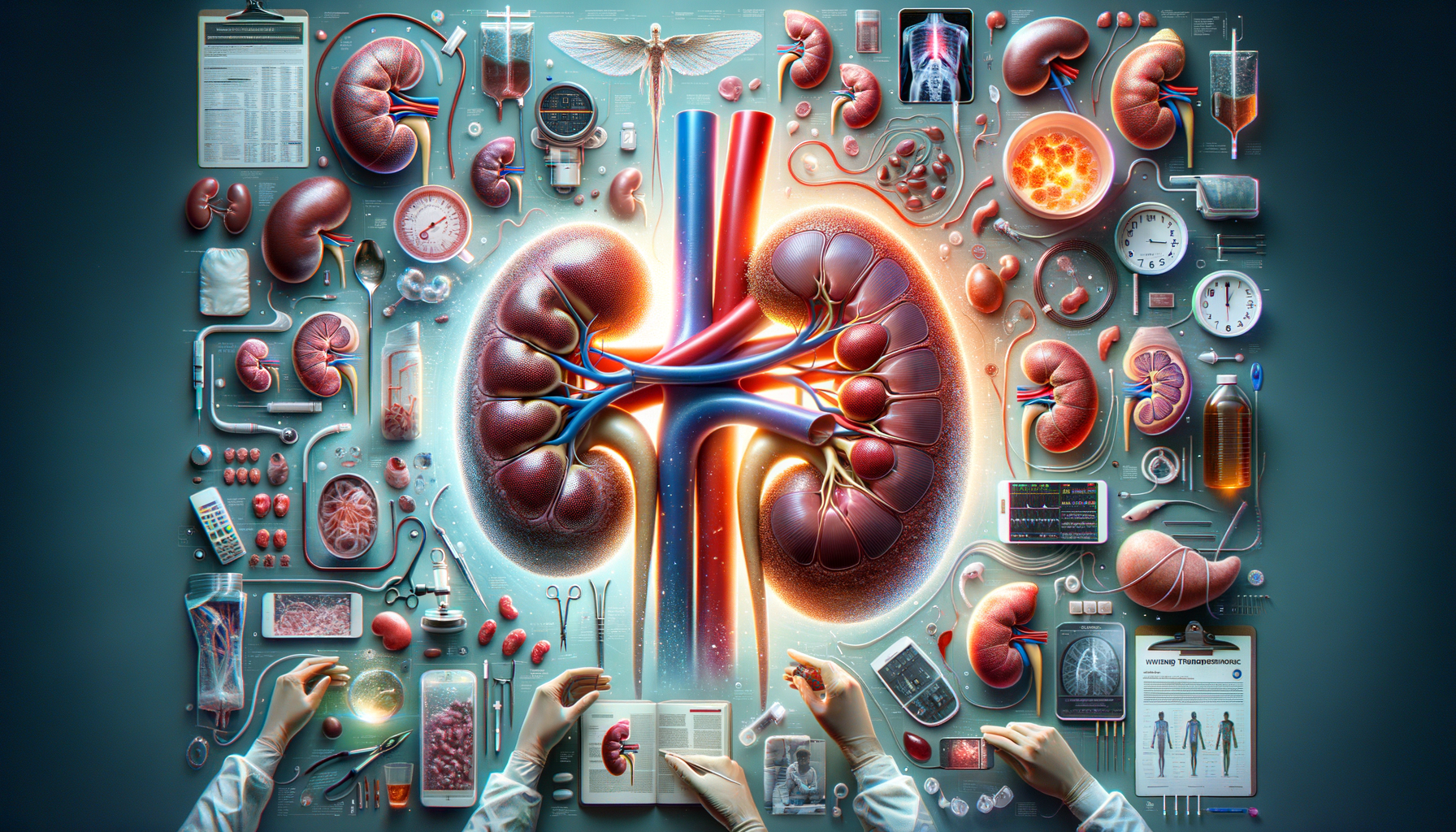How Kidney Transplants Work and Who Qualifies
Kidney transplants are a critical treatment option for individuals suffering from end-stage renal disease (ESRD), a condition where the kidneys can no longer filter waste effectively. The process involves surgically placing a healthy kidney from a donor into the patient, allowing the new organ to take over the function of filtering blood and producing urine.
Eligibility for a kidney transplant is determined by various factors. Primarily, candidates must have ESRD and be deemed medically suitable for surgery. This involves comprehensive evaluations, including physical exams, blood tests, and imaging studies, to assess the patient’s overall health and the likelihood of a successful transplant. Patients must also demonstrate a commitment to adhering to post-transplant care, including medication regimens and follow-up appointments.
Potential candidates are often evaluated based on their ability to benefit from the transplant. Factors such as age, other medical conditions, and overall life expectancy are considered. Additionally, patients with active infections, cancer, or significant cardiovascular issues may be excluded from transplant lists until these conditions are managed.
Once deemed eligible, patients are placed on a transplant waiting list managed by a national organ procurement and transplantation network. The waiting time can vary significantly based on factors like blood type, tissue match, and availability of donors. The ultimate goal is to match patients with suitable donors to maximize the chances of a successful transplant and improve the patient’s quality of life.
What to Expect During Kidney Transplant Recovery
Recovering from a kidney transplant involves a carefully monitored process to ensure the new organ functions properly and the patient’s body accepts it. Initially, patients spend several days in the hospital, where medical staff closely monitor kidney function, vital signs, and any signs of complications such as infection or rejection.
Post-surgery, patients are prescribed immunosuppressive medications to prevent the immune system from attacking the transplanted kidney. These medications are crucial but require careful management to balance the risk of infection with the need to prevent organ rejection. Regular blood tests help monitor kidney function and medication levels, ensuring the new kidney is working effectively.
Patients are advised to follow specific lifestyle modifications to support recovery. These include adhering to a balanced diet, engaging in moderate physical activity, and avoiding activities that could strain the new kidney. Regular follow-up visits with healthcare providers are essential to track progress and address any concerns promptly.
Emotional and psychological support is equally important, as the transition can be challenging. Patients may experience a range of emotions, from relief and gratitude to anxiety and fear of rejection. Support groups and counseling can provide valuable resources for coping with these feelings and adjusting to life post-transplant.
How Living Kidney Donation is Matched
Living kidney donation offers an alternative to waiting for a deceased donor organ, significantly reducing the waiting time for recipients. The matching process for living kidney donations involves several steps to ensure compatibility and minimize the risk of rejection.
The first step in matching involves blood type compatibility. Donors and recipients must have compatible blood types to proceed with the transplant. Once blood type compatibility is established, tissue typing is performed to assess the compatibility of human leukocyte antigens (HLAs), which play a critical role in the body’s immune response.
Crossmatching is another essential step, where the recipient’s blood is tested against the donor’s to check for any pre-existing antibodies that could attack the donor kidney. A negative crossmatch indicates that the transplant can proceed safely, as there are no harmful antibodies present.
In some cases, paired kidney exchange programs are utilized. These programs match incompatible donor-recipient pairs with other pairs in similar situations, effectively creating a network of exchanges that enable successful transplants.
Living kidney donation not only increases the availability of organs but also often results in better outcomes, as the organs are typically healthier and the surgery can be scheduled electively. This proactive approach to kidney transplantation provides hope and improved quality of life for many patients with ESRD.
The Role of the Transplant Team
The success of a kidney transplant relies heavily on the expertise and coordination of a dedicated transplant team. This multidisciplinary team includes nephrologists, transplant surgeons, nurses, dietitians, social workers, and pharmacists, all working together to ensure the best possible outcomes for patients.
Nephrologists are responsible for evaluating the patient’s kidney function and overall health, determining eligibility, and managing care before and after the transplant. They work closely with transplant surgeons, who perform the surgical procedure and manage any surgical complications that may arise.
Nurses play a crucial role in patient education and post-operative care, providing guidance on medication management, lifestyle changes, and monitoring for signs of rejection or infection. Dietitians help patients understand dietary modifications necessary to support kidney health, while social workers assist with emotional support and logistical challenges related to the transplant process.
Pharmacists ensure that patients understand their medication regimen, including the importance of adherence to immunosuppressive therapy. They also monitor for potential drug interactions and side effects, providing an additional layer of safety in the patient’s care.
The collaborative efforts of the transplant team are essential in navigating the complex journey of kidney transplantation, offering patients comprehensive support and expertise at every stage.
Conclusion: A Lifeline for Those in Need
Kidney transplantation offers hope and a new lease on life for individuals with end-stage renal disease. Understanding the intricacies of the transplant process, from eligibility and recovery to the matching of living donations, is crucial for patients and their families. The dedicated efforts of the transplant team ensure that each patient receives personalized, compassionate care tailored to their unique needs.
As medical advancements continue to improve outcomes and expand options for kidney transplantation, the importance of education and awareness cannot be overstated. By fostering a deeper understanding of the process, more individuals can make informed decisions about their health, whether considering a transplant or contemplating becoming a living donor.
Ultimately, kidney transplantation is more than a medical procedure; it is a lifeline that transforms lives, offering renewed hope and the possibility of a healthier, more fulfilling future.




Leave a Reply